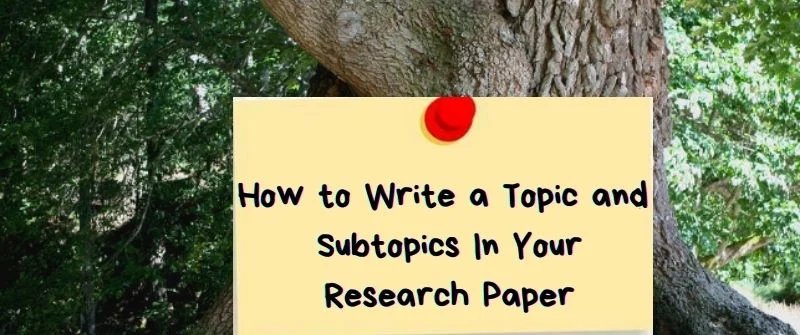How to Sign Off a Letter or Email to Professor Professionally
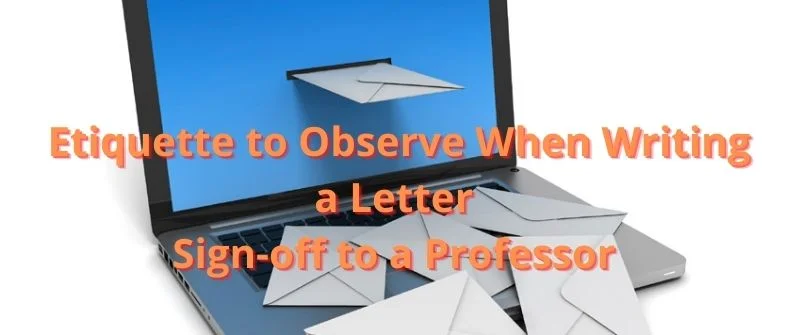
Regrettably, most students do not know how to write a formal letter. However, this is an activity you will find yourself doing as a student.
Writing a letter to your professor should be straightforward. There is a difference in your letter structure in how you end emails to your friends and how you write to your professor.
A critical aspect of letter writing that is overlooked is signing off a letter. There is an etiquette that governs how to professionally sign off a letter to a professor.
Always write your letter in a polite and respectful tone.
How to Sign Off a Letter or Email to a Professor Professionally
Although there is a debate on whether or not email sign-off is necessary, always be formal and use a sign-off. Some people argue letter writing is changing its formatting structure. But there is one standard way to end an email to your teacher well.
The best way to sign off a letter or an email to a professor in a professional way is by thanking him for reading your message and wishing him the best. Then use ‘Best Regards” and sign off with your official names below it.
Thanking him in advance presents your appreciation for his or her time and opens an opportunity for more service or request you placed in the letter.

The older generation believes otherwise. Whatever you choose, know it’s advisable to leave a sign-off on your email or letter to your professor.
Understanding the proper etiquette when addressing your professor is paramount.
By coming out too casually, you may be termed as disrespectful, especially to a person at the level of a professor.
Just like in the introduction and body of your letter/ email, do not use capital letters.
Using caps, it seems like you are shouting. Stick to standard text sizes.
People Also Read: Can you Use ‘You’ in Essays or Research Paper: Best Practice
Etiquettes when Signing Off
Professional letter etiquette is not something taught. As a result, sending the first letter to your teacher can be a bit stressful. Always end your letters by thanking the professor for their time.
In our guide on how to write an email to your professor, we explained the use of formal language. When writing it, be sure to use formal language and sign off well. Observe the following as the etiquette for signing off
1. Be Professional
Notably, you and your professor relate formally. The relationship is professional, so it should be your letter signing off.
By being professional, you use complete words, not short forms. In addition, you use proper grammar. Mind the punctuation and capitalization when writing.
2. Do not use Emoji and Smileys
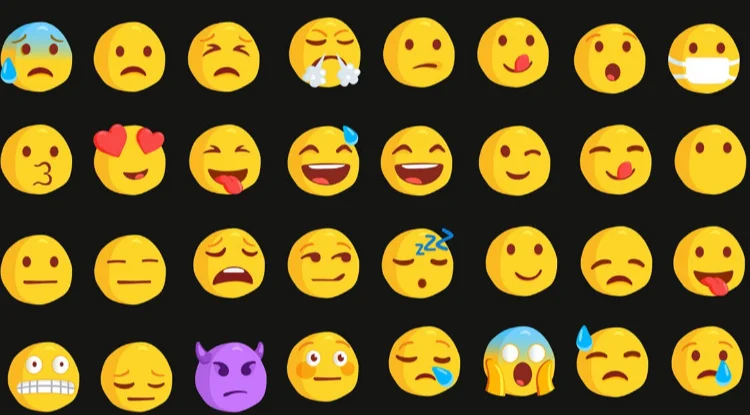
Emojis are fun to use and emphasize specific moods.
However, they are not meant for professional letter writing to your professor.
Besides making your email difficult to read, you may portray yourself as disrespectful and childish to your professor.
Emoji disrupts the flow of information. For instance, when you find an emoji when reading, you pause first to understand the interpretation of the emoji, then you continue.
3. Review your Letter
Before sending your letter, reread it; you might find a typo or something you missed. In some cases, a professor skims through your letter and focuses on the last paragraph, the conclusion.
A misspelled word portrays a lack of respect, keeping in mind the freely available spell checkers. Failure to proofread can cause you to miss an opportunity.
4. Do not use Text Language and other College Slung
Text language requires translation. It is only understood by people reasoning together. If you incorporate text language, your professor will be forced to search for meaning.
Text language is only allowed and practiced on social platforms where people using them understand their meaning. Please do not use them in your formal letters.
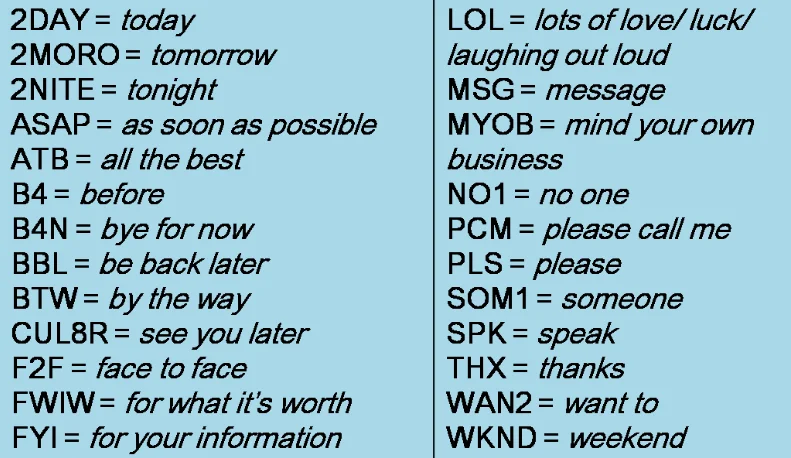
Examples of text language include;
- BRB for be right back
- BTW meaning by the way
- THX to mean thanks
- LMK means let me know
Text language is used in casual conversations. Also, be sure to use the word professor appropriately.
Remember to capitalize the word Professor at the appropriate places, like when you are writing the name and the title of the professor.
5. Use the University Email Address
A university address signals your professor that you are his student. This will prompt the professor to read and attend to your email soon.
Besides, using a university address makes your letter look more professional. Assuredly, your letter won’t drop into the spam folder.
If you use your personal email, it’s good to remove the statements or quotes at the bottom of your email. You never know; it might offend.
6. Base your Sign-Off with the Length of your Letter
For instance, if you have written one or two sentences in your email body, the closing remark should be something short as well. When your email is long, the conclusion text should also be lengthy.
People Also Read: Do College Essays Need Title? Tips How to Write Good Titles
Examples of Letter To Professor Conclusions
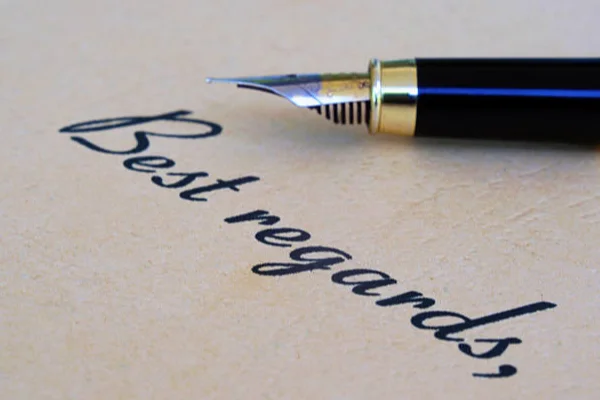
The following are examples of respectful sign-offs. Use the one appropriate to you.
Always use your full name to avoid confusion.
Sincerely,
Nora Kim
Thank you!
Eliza Waters
Respectfully
George Smith
Best regards
Olivia Jones
Wrong ways to sign off
BRGRDS
Nora Kim
Respectfully
George.
The above is too informal. The term “BRGRDS” means best regards. But does your professor know this? The mistake in the second one is the failure to write full names at the end. An example of a wrongly written conclusion:
THANKS SO MUCH FOR YOUR ASSISTANCE. The syllabus WASN’T CLEAR on the issue. I LOOK FORWARD TO SEEING YOU IN CLASS.
The above-capitalized phrases make the letter seem unprofessional. Your intentions may be sincere, but you come out different. You seem angry and threatening.
Writing an email can be a challenge. However, by observing the letter-writing etiquette, you are assured of writing in a respectful and polite tone.

When not handling complex essays and academic writing tasks, Josh is busy advising students on how to pass assignments. In spare time, he loves playing football or walking with his dog around the park.


